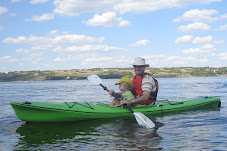Blogs are now used in a large variety of different contexts, from presidential campaigns to personal diaries. If we are interested in using blogs in language education, then it helps to think about what makes a good blog, and what makes a good blogging assignment.
On what makes a good blog, Will Richardson (author of Blogs, Wikis and Podcasts) suggests that real blogging involves deep reflection and personal growth over a period of time. Such 'complex blogs' involve 'extended analysis and synthesis over a longer period of time that builds on previous posts, links and comments'. Take a look at his evaluation blogging in education contexts, it's worth a read.
Ideally, a 'blogging assignment' should include more than just posting to a blog. Blogs are about participating in communities, and so it is important to think about relevant sources (e.g. web sites and other blogs), link to these from your posts, and provide others with feedback (e.g. in the form of comments). In their study of student blogging, Ducate and Lomicka (needs library login) divide the process into two stages: one of blog reading, the other of posting to blogs. This seems like a sound idea, as their students were able to gain some insight into blogging conventions before they began posting themselves.
If you're interested in learning about blogging conventions, then it will definitely help to read some blogs (you can start with the ones in this blog's blogroll). What conventions can you identify?
Subscribe to:
Post Comments (Atom)

3 comments:
Well, almost all the blogs I've come across so far appear to follow these conventions:
i. The inclusion of links within blog posts (e.g. to other blogs or to websites that are highly recommended), readers' comments on the author's posts, author's feedback to those comments, various categories in the blog roll that are accessible by the readers, tags to posts, etc.
2. Positive commenting. Virtually all of the comments that I have read have been positive (e.g. 'Nice idea' or 'This is a great tool'). Nik Peachey's blog (http://nikpeachey.blogspot.com/), for example, is full of great ideas on using technology in the classroom and I have yet to see a single negative comment to any of his posts. Perhaps readers of blogs are expected to be loyal to the bloggers they follow (especially if they belong to the same community)?
Can't think of any more. Are there any other conventions?
Thanks for the comment. I think you've covered the most important points, but have a look at this article for a full list of various affordances of blogs. The point about comments is interesting too. Ideally, comments should be kept positive and criticism constructive, if we are interested in learning from blogging. Where there are disagreements, it should be possible to resolve these reasonably and in a spirit of co-operation, rather than by leaving antogonistic comments (but that's not to say it doesn't happen).
I strongly agree that "real blogging involves deep reflection and personal growth over a period of time". To tell the truth, I am a blog-lover and I enjoy reading blogs because some authors post their refections on the important issues both in China and overseas.
I am thinking of connecting blogs and language learning, for one thing, I think students are enthusiastic about sharing their own experiences, and for another thing, it is a good platform for communication between students and the teacher.
Post a Comment